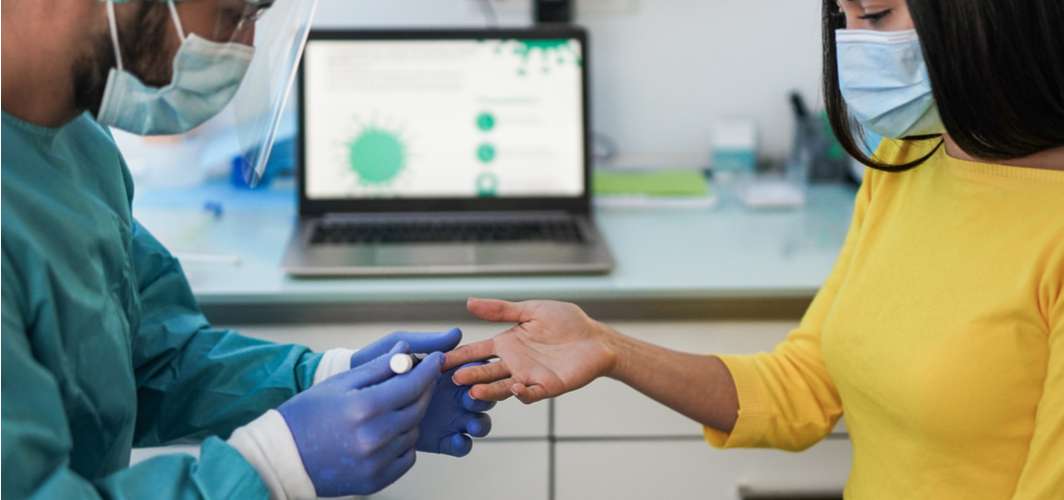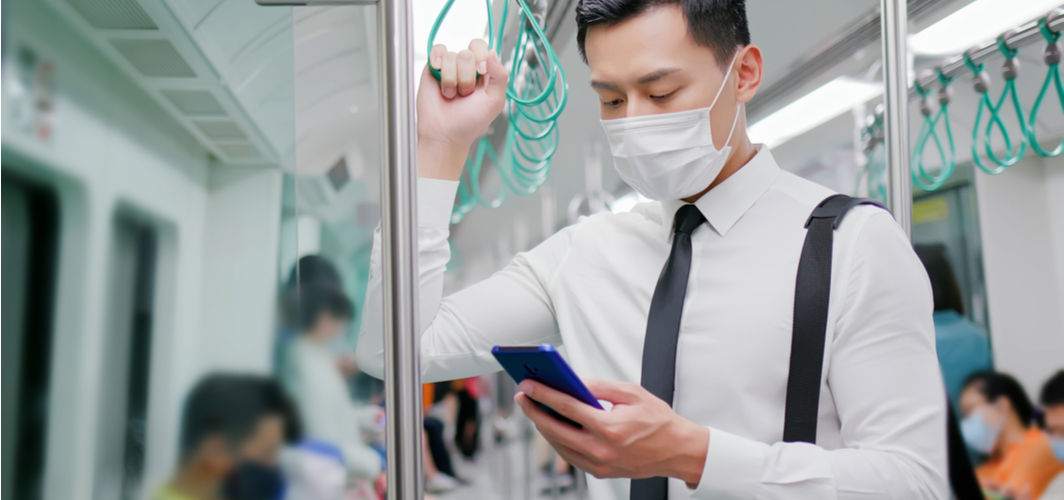Coronavirus Updates
Can COVID-19 Cause Diabetes in Healthy People?
3 min read
By Apollo 24/7, Published on - 17 March 2021, Updated on - 13 November 2022
Share this article
0
26 likes

Initially, COVID-19 was known to affect only the respiratory system, in some cases causing significant damage to the lungs. However, more research has revealed that people diagnosed with COVID-19 have developed kidney damage, myocarditis (inflammation of the heart muscle) and nerve damage. Similarly, various case reports have also shown that people suffering from COVID-19 have developed sudden-onset diabetes.
The relationship between diabetes and COVID-19
Various studies conducted in past have concluded that diabetics are at increased risk of developing severe symptoms of COVID-19. However, different case studies have reported that people suffering from COVID-19 and without previously known problems with blood sugar, can suffer from new-onset diabetes as well as other severe metabolic complications such as diabetic ketoacidosis and hyperosmolarity (high amount of salt and glucose in the blood).
Studies reporting new-onset diabetes in COVID-19 patients
Some of the case studies reporting COVID-related diabetes include:
- A study published in the journal Nature Metabolism on 2nd September 2020 stated that COVID-19 patients suffer from sudden-onset diabetes as the beta cells present in the pancreas contain a significant number of ACE2 receptors in them, which attracts the COVID-19 virus. The infection caused by the novel coronavirus damages the beta cells, resulting in decreased insulin production and increased blood sugar levels in the body. It is to be noted that insulin is required to maintain blood sugar levels.
- A research letter published in the New England Journal of Medicine in August 2020 stated that COVID-19 has a ‘bidirectional relationship’ with diabetes. This is because diabetics are considered at risk of developing severe COVID-19, while people diagnosed with COVID-19 have been reporting new-onset diabetes.
Possible reasons for sudden onset diabetes in COVID-19 patients
The exact reason behind the increased blood sugar levels in COVID-19 patients is not known yet. However, based on different research pieces, the reasons for COVID-related diabetes could include:
- Some scientists believe high sugar levels in COVID-19 patients could be a side effect of dexamethasone, a steroid being used in hospitals to treat Coronavirus patients.
- Studies also report that the COVID-19 virus could damage beta cells of Langerhans, which are present in the pancreas and are responsible for the production of insulin. In the absence of insulin, blood sugar levels can rise to an alarming level.
- Scientists also believe that COVID-related diabetes was seen in people who had undiagnosed pre-diabetes (a stage before diabetes) for years.
- Some doctors believe COVID-associated diabetes could be a new form of diabetes that includes the characteristics of both type 1 and type 2 diabetes.
- Studies have shown that sudden-onset diabetes was also found in people who suffered from SARS (Severe acute respiratory syndrome) a decade ago.
Takeaway
People suffering from prediabetes or those with a family history of diabetes are at increased risk of developing COVID-related diabetes. Scientists are not sure if this increase in blood sugar levels is transient or permanent. More research needs to be done to identify the reason behind this new-onset diabetes in COVID-19 patients. Meanwhile, people must continue to strictly follow COVID-appropriate behaviour like wearing a mask, following social distancing norms and washing their hands frequently to reduce the spread of the novel coronavirus. They must also record their blood glucose levels regularly to identify and monitor abnormal patterns.
The government has started administering COVID-19 vaccines to people who are over 60, and those above the age of 45 and with comorbidities. People in these groups must register to get themselves vaccinated at the earliest, in order to reduce the risk of infection for themselves and their loved ones.
Apollo is offering vaccinations for the specified groups at low, government-approved prices. Apollo’s 24|7 app offers a spectrum of vaccination services. Customers can use it to book and schedule a COVID-19 vaccination in 3 easy steps.
It can also be used to do a virtual consultation with a speciality doctor, for matters relating to diabetes and other metabolic disorders.
Coronavirus Updates
Leave Comment
Recommended for you

Coronavirus Updates
How to Improve Mental Health During COVID-19
Apart from following all the COVID-19 safety protocols to avoid infection and transmission of the virus, it is essential to follow a productive routine and stay emotionally connected with people.

Coronavirus Updates
How to Keep Yourself Physically Active During Lockdown
Regular physical activity can benefit both the body and mind, especially during the lockdown. It is also good for our mental health as it can reduce stress and enhance our overall mood.

Coronavirus Updates
Safety and Hygiene Tips to Follow When Using Public Transport After the COVID-19 Lockdown
Take all the necessary precautions given in this article, including wearing masks and practicing social distancing, to protect ourselves when using public transport after lockdown.
Subscribe
Sign up for our free Health Library Daily Newsletter
Get doctor-approved health tips, news, and more.
Visual Stories

COVID-19: The situation on ground [6th July 2021]
Tap to continue exploring
Recommended for you

Coronavirus Updates
How to Improve Mental Health During COVID-19
Apart from following all the COVID-19 safety protocols to avoid infection and transmission of the virus, it is essential to follow a productive routine and stay emotionally connected with people.

Coronavirus Updates
How to Keep Yourself Physically Active During Lockdown
Regular physical activity can benefit both the body and mind, especially during the lockdown. It is also good for our mental health as it can reduce stress and enhance our overall mood.

Coronavirus Updates
Safety and Hygiene Tips to Follow When Using Public Transport After the COVID-19 Lockdown
Take all the necessary precautions given in this article, including wearing masks and practicing social distancing, to protect ourselves when using public transport after lockdown.